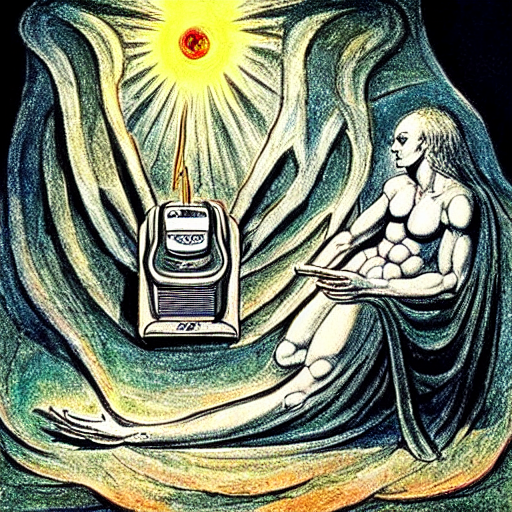Conference call: Difference between revisions
Amwelladmin (talk | contribs) No edit summary Tags: Mobile edit Mobile web edit |
Amwelladmin (talk | contribs) No edit summary |
||
| (18 intermediate revisions by the same user not shown) | |||
| Line 1: | Line 1: | ||
{{a|confcall|{{image|Hell Telephone 3|png|''Hell Telephone'', {{vsr|1792}}}}}}According to the [[first law of work entropy]], it is logically impossible for a conference call to start on time. | |||
Outside the German-speaking world, the probability of anyone dialling in to any conference call even a moment more before it is scheduled to begin is as close to zero as makes no difference. The likelihood of any two being perfectly on time is slimmer still. Since, as {{buchstein}} wryly noted, “one cannot meet alone”,<ref>{{Buchstein}}, {{dsh}}, III, ii.</ref> the point at which a conference call can become [[ontological]]ly quorate is, necessarily, a non-trivial period of time ''after'' its scheduled start. | |||
{{ | This [[heuristic]] does not hold in the German-speaking world, however. | ||
German speakers will happily join a conference call minutes or even hours before it is due to start purely to experience the cleansing effect (''[[früheankunftfreude]]'' of being ''der [[warteschleifenmusikopfer]]'' — the first to plunge into an icy bath — or indeed to avoid the stigma (''[[späteankunftschande]]'') of being the last invitee to join — a taboo that applies even where all attendees have dialed in before the appointed time (an eventuality which, outside German speaking world, is all but logically impossible). | |||
===Conference calls in literature=== | |||
The first recorded literary reference to the [[conference call]] was as a minor plot development in {{buchstein}}’s uncelebrated operatta, {{dsh}}, when hapless [[general counsel]] [[Triago]], sensing the untimely end to a meeting he has convened but no-one else is enjoying, casts hopefully about for further business: | |||
{{quote| | |||
{{dsh conference calls}}}} | |||
{{sa}} | |||
*{{dsh}} | |||
*[[Späteankunftschande]] | |||
*[[Früheankunftfreude]] | |||
*[[Warteschleifenmusikopfer]] | |||
*[[Meeting paradox]] | |||
{{ref}} | |||
Latest revision as of 14:40, 25 October 2022
|
Conference Call Anatomy™
|
According to the first law of work entropy, it is logically impossible for a conference call to start on time.
Outside the German-speaking world, the probability of anyone dialling in to any conference call even a moment more before it is scheduled to begin is as close to zero as makes no difference. The likelihood of any two being perfectly on time is slimmer still. Since, as Büchstein wryly noted, “one cannot meet alone”,[1] the point at which a conference call can become ontologically quorate is, necessarily, a non-trivial period of time after its scheduled start.
This heuristic does not hold in the German-speaking world, however.
German speakers will happily join a conference call minutes or even hours before it is due to start purely to experience the cleansing effect (früheankunftfreude of being der warteschleifenmusikopfer — the first to plunge into an icy bath — or indeed to avoid the stigma (späteankunftschande) of being the last invitee to join — a taboo that applies even where all attendees have dialed in before the appointed time (an eventuality which, outside German speaking world, is all but logically impossible).
Conference calls in literature
The first recorded literary reference to the conference call was as a minor plot development in Büchstein’s uncelebrated operatta, Die Schweizer Heulsuse, when hapless general counsel Triago, sensing the untimely end to a meeting he has convened but no-one else is enjoying, casts hopefully about for further business:
Triago: Good colleagues: there are but twenty minutes left.
Wouldst you thy precious time reclaim;
Or may we keep afoot our infinite game —
With more, or any other, business? Search anew,
What items canst be tabled without ado?Gloucester: Nothing sire.
Kent: Nor from I.
A period of silence around the table.
Queen: (Aside) That irksome twerp.
A world of richness awaits this piffling parley.Triago: How say you, brave Herculio?
What agenda fodder doth the gods portend?Herculio: The gods? The gods? Methinks you jest.
Th’almighty has no use for paltry conference.Triago: I think he does, sirrah!
Queen: Oh, ho! How so?
What matters lie upon thy parchèd record
That be yet unbeknownst to sacred mind?
Whose cogs and toothèd gears
Whose immaculate escapements
All history — gone and yet to come — defined?
What need hath she, or he
Who bid the lion lay with lamb
For this dismal convention?Nuncle: Thou maketh me to meet —
Therefore I am.Triago: How should I know, my Queen?
How should I know?Queen: Quite so, good sir, quite so. I must away.
Maketh thou the time-ball drop.Exit Queen
Herculio: With all my heart, my Liege —
One has to hop.Exeunt
See also
- Die Schweizer Heulsuse
- Späteankunftschande
- Früheankunftfreude
- Warteschleifenmusikopfer
- Meeting paradox
References
- ↑ Büchstein, Die Schweizer Heulsuse, III, ii.
